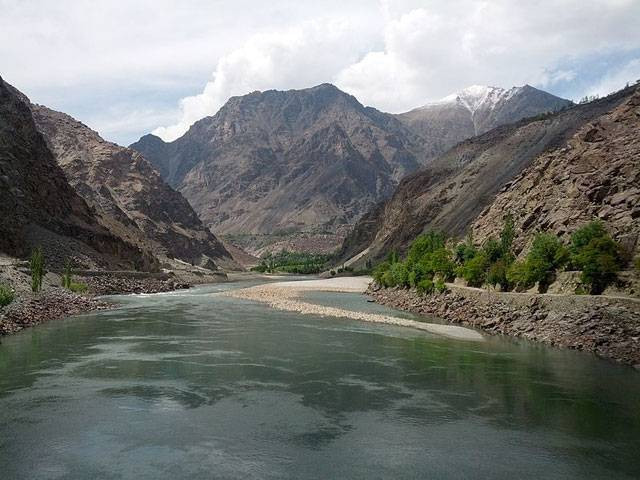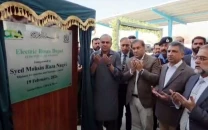WB’s delay in Indus Water Treaty mediation ‘prejudices Pakistan’s rights’
Finance Minister Ishaq Dar writes a letter to the World Bank Group President Jim Yong Kim

Indus river PHOTO: Wikipedia
“In our assessment, a pause in the process of appointment of the Court of Arbitration will seriously prejudice Pakistan’s interests and rights under the Indus Water Treaty, 1960,” according to a letter written by Finance Minister Ishaq Dar to the president of the World Bank Group, Jim Yong Kim.
It was the first official response by Pakistani authorities to the Washington-based lender’s decision to stop playing the mediator role in execution and implementation of the Indus Water Treaty. The government took almost two weeks to respond to the WB’s move, which the experts believed the lender took under pressure of Indian lobby.
Water wars: Pakistan needs to strengthen legal stance on IWT
The government demanded the WB to immediately appoint the Chairman of the Court of Arbitration, which suggests that Islamabad would not like to resolve the issue bilaterally with India, as suggested by the lender.
Dar further wrote that the WB’s decision to pause the process would not contemporaneously pause the construction of the two hydroelectric plants whose designs are the subject matter of the present dispute.
He said the pause would merely prevent Pakistan from timely approaching a competent forum and having its grievances addressed, adding that the 1960 treaty does not provide for a situation where in a party can “pause performance of its obligations under the Treaty”.
Pakistan had disputed India’s move to construct two power plants – the 330-megawatt Kishanganga hydropower plant and 850-megawatt Ratle hydroelectric power plant. The power plants are being built by India on the Kishanganga and Chenab rivers respectively.
India has recently raised temperatures after it revealed its intentions to block waters flowing into Pakistan. Islamabad has taken an exception to the Indian designs, saying any such move will be taken as open aggression.



















COMMENTS
Comments are moderated and generally will be posted if they are on-topic and not abusive.
For more information, please see our Comments FAQ